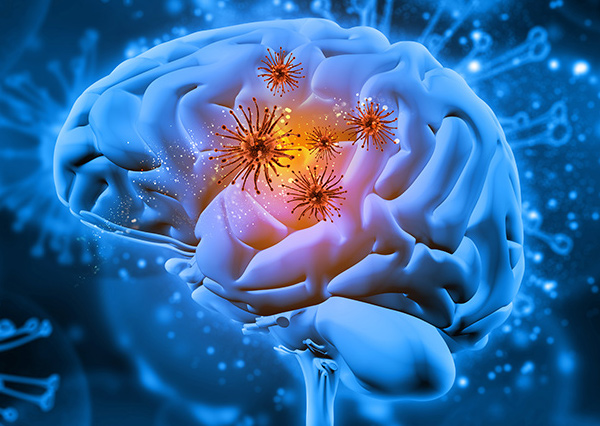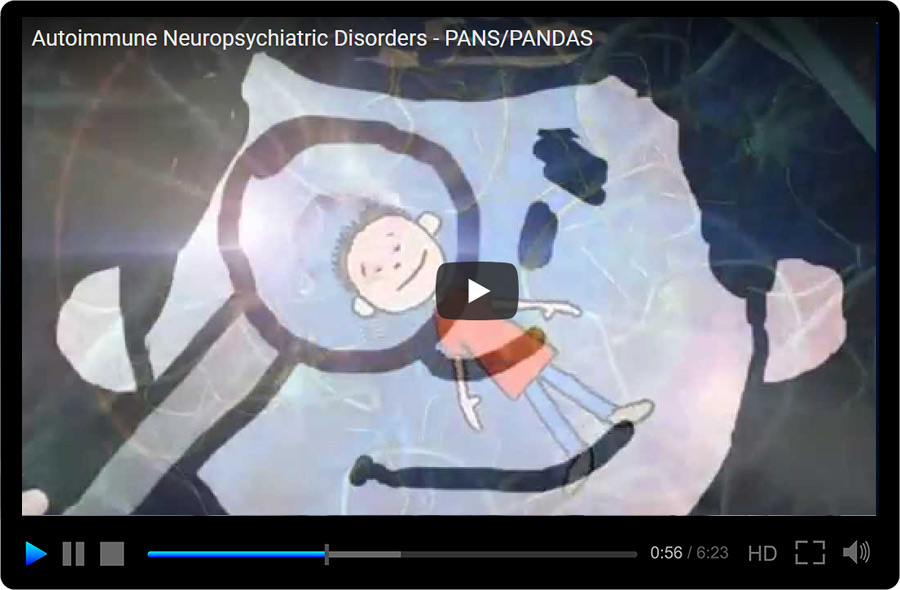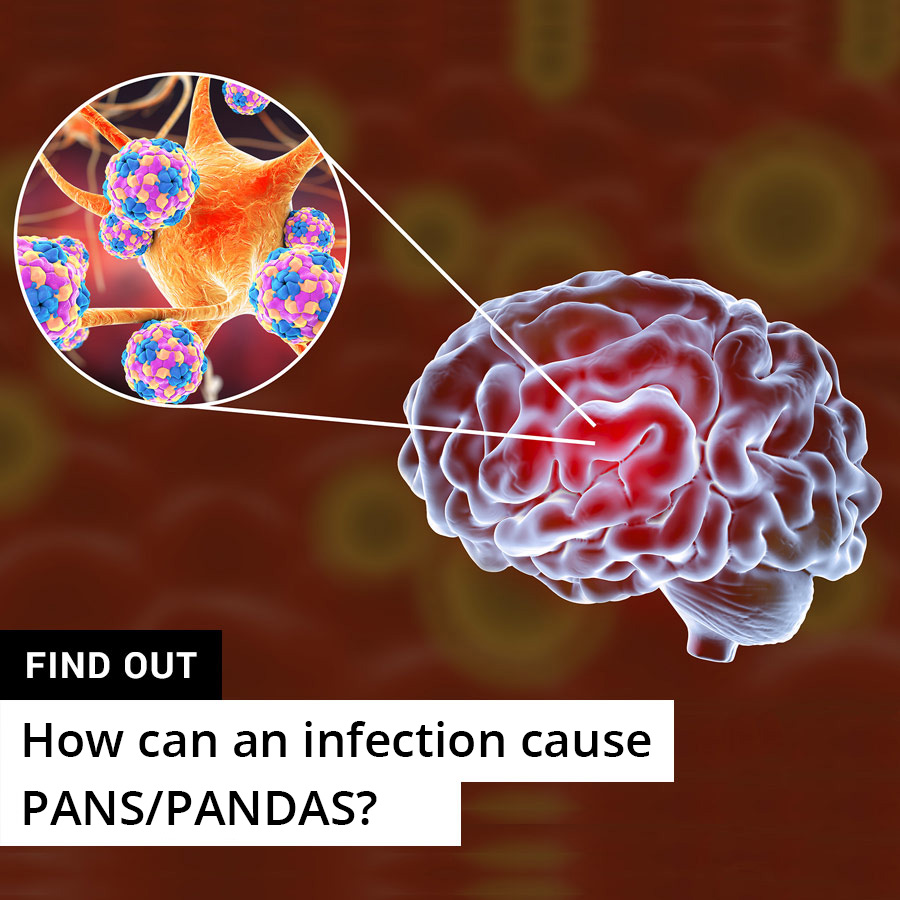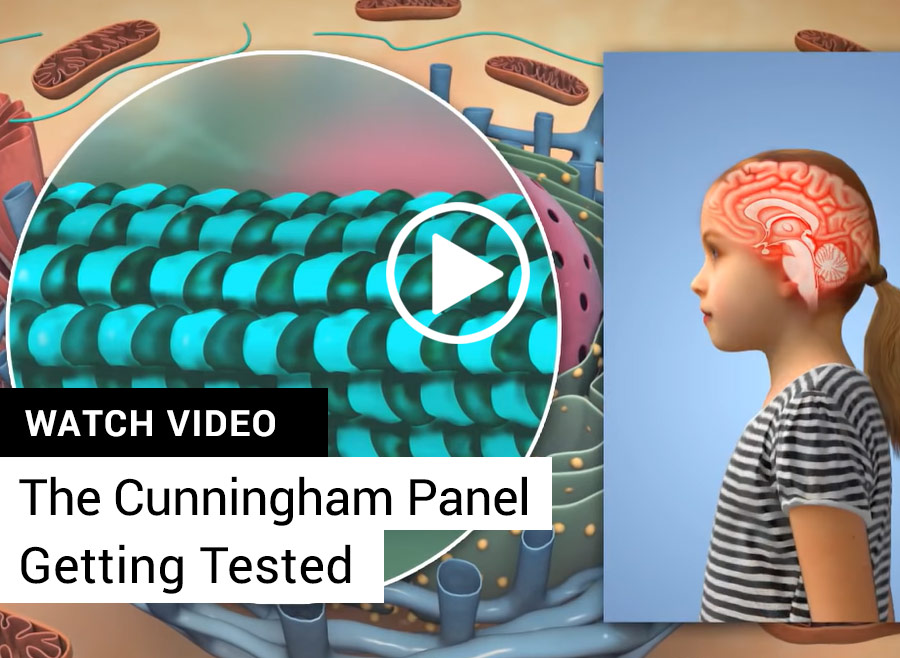What is PANDAS?
What Is PANDAS?
PANDAS was first identified in a group of 50 children in 1998 by Dr. Susan Swedo and a team of researchers from the National Institute of Mental Health (NIMH). 2 In 2002, the first clinical study of PANDAS was published and reported evidence of a “temporal association of group A streptococcal tonsillopharyngitis and abrupt onset of OCD in 12 children.” In all 12 children, treatment with antibiotics resulted in a rapid reduction in OCD symptoms. 3
PANDAS is a complex condition with symptoms mimicking many psychiatric disorders.
In 2010, PANDAS was classified as a subset of a broader condition known as Pediatric Acute-onset Neuropsychiatric Syndrome (PANS). 4 The two disorders are similar in symptom presentation, and treatment. However, while PANDAS is a disorder triggered by strep infections, PANS is a syndrome which may be caused by a variety of infectious agents or environmental triggers.
How does PANDAS occur?
PANDAS is an autoimmune disorder which targets the basal ganglia region of the brain. In genetically predisposed children, a strep infection can result in an autoimmune response, in which antibodies produced by the immune system to fight the strep bacteria, mistakenly target healthy tissue and biological receptors in the basal ganglia.
This can result in inflammation in that region of the brain and disrupt normal neuronal functioning, resulting in an abrupt onset of OCD-like behaviors and/or tics, and other neurologic and psychiatric symptoms.
Researchers believe PANDAS, like Sydenham’s chorea, occurs through a process known as molecular mimicry, in which the immune system mistakenly attacks healthy tissue because of similarities between a particular molecule on an infectious agent (i.e., bacteria, virus) and the molecules in our own body tissues. 5
PANDAS “symptoms arise when antibodies against the dominant streptococcal group A carbohydrate epitope, N-acetyl-beta D-glucosamine (GLcNAc), cross-react with neurons in human basal ganglia.” 1
Studies suggest “that both PANDAS and [Sydenham’s chorea] are manifestations of basal ganglia encephalitis provoked by cross-reactive anti-neuronal antibodies.” 1
READ MORE: How infections trigger neuropsychiatric symptoms
PANDAS: Signs and Symptoms
PANDAS is a treatable childhood disorder, with symptoms typically presenting between 3 and 12 years of age (mean – 6.5 years). 6 It is twice as common in males. 7
OCD-like behaviors and/or tics typically appear suddenly. Co-morbid symptoms vary from person-to-person, range in severity, and follow a relapsing/remitting course. Symptoms may disappear for a bit, only to return. Or symptoms may change over time. 8
The true prevalence is unknown, but PANDAS Network, a nonprofit research organization, estimates that PANDAS may impact 1 in 200 children in the U.S.A.
A PANDAS diagnosis requires a child to have a sudden onset of obsessions-compulsions and/or tics in temporal association with a Group A strep infection. However, children with this disorder often exhibit a constellation of co-morbid symptoms. 7
In fact, studies have found “the presence of significant comorbidity, particularly the somatic symptoms such as urinary frequency, mydriasis and insomnia, helps differentiate PANDAS from other conditions, such as Tourette syndrome or non-PANDAS OCD.” 8
“Children had on average 5 of the co-morbid symptoms and particularly apparent were those somatic signs and symptoms of urinary frequency, enuresis and sleep disturbances.” 8
- Chain Jennifer L., Alvarez Kathy, Mascaro-Blanco Adita, Reim Sean, Bentley Rebecca, Hommer Rebecca, Grant Paul, Leckman James F., Kawikova Ivana, Williams Kyle, Stoner Julie A., Swedo Susan E., Cunningham Madeleine W. “Autoantibody Biomarkers for Basal Ganglia Encephalitis in Sydenham Chorea and Pediatric Autoimmune Neuropsychiatric Disorder Associated With Streptococcal Infections.” Frontiers In Psychiatry, vol. 11, 2020, p. 564., doi: https://www.frontiersin.org/article/10.3389/fpsyt.2020.00564
- Swedo et al. Pediatric Autoimmune Neuropsychiatric Disorders Associated With Streptococcal Infections: Clinical Description of the First 50 Cases. The American Journal of Psychiatry, 155 (2), 1998. https://ajp.psychiatryonline.org/doi/full/10.1176/ajp.155.2.264
- Murphy ML, Pichichero ME. Prospective identification and treatment of children with pediatric autoimmune neuropsychiatric disorder associated with group A streptococcal infection (PANDAS). Arch Pediatr Adolesc Med. 2002 Apr;156(4):356-61. doi: 10.1001/archpedi.156.4.356. PMID: 11929370. https://pubmed.ncbi.nlm.nih.gov/11929370/
- Swedo, S. E., Leckman, J. F., & Rose, N. R. (2012). From research subgroup to clinical syndrome: modifying the PANDAS criteria to describe PANS (pediatric acute-onset neuropsychiatric syndrome). Pediatr Therapeut, 2(2), 113. https://pdfs.semanticscholar.org/18d2/35883c50806ae7a618586571d24a90bfe490.pdf
- Cunningham M. 2019. Molecular Mimicry, Autoimmunity, and Infection: The Cross-Reactive Antigens of Group A Streptococci and their Sequelae. Microbiol Spectrum 7(4):GPP3-0045-2018. doi:10.1128/microbiolspec.GPP3-0045-2018. https://www.asmscience.org/content/journal/microbiolspec/10.1128/microbiolspec.GPP3-0045-2018
- An overview of diagnosing and treating PANS and PANDAS, a presentation by Susan Swedo, MD, PANDAS Physicians Network (PPN). https://www.pandasppn.org/presentations/#main
- Swedo SE, Seidlitz J, Kovacevic M, et al. Clinical presentation of pediatric autoimmune neuropsychiatric disorders associated with streptococcal infections in research and community settings. J Child Adolesc Psychopharmacol. 2015;25(1):26-30. doi:10.1089/cap.2014.0073 https://www.ncbi.nlm.nih.gov/pmc/articles/PMC4340334/
- PANDAS Physicians Network (PPN). PANDAS Diagnostic Guidelines. https://www.pandasppn.org/pandas/
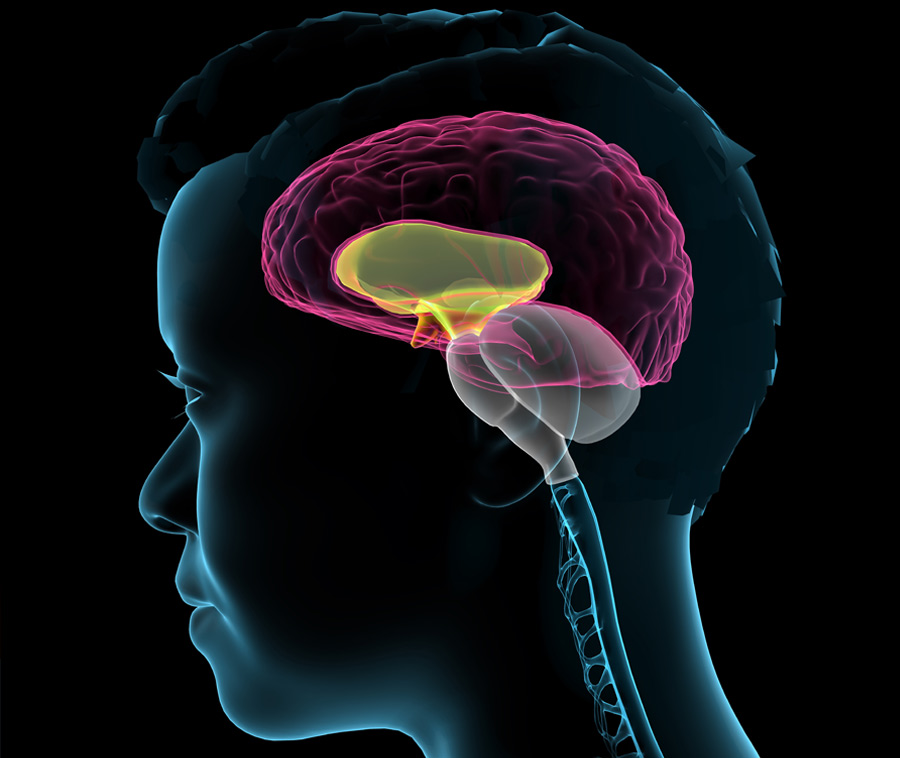
PANDAS is an autoimmune disorder which targets the basal ganglia region of the brain.
Learn More About PANS & Pandas and The Cunningham Panel™

PANDAS: Diagnosis and Treatment

Pandas & PANS Patient Stories
